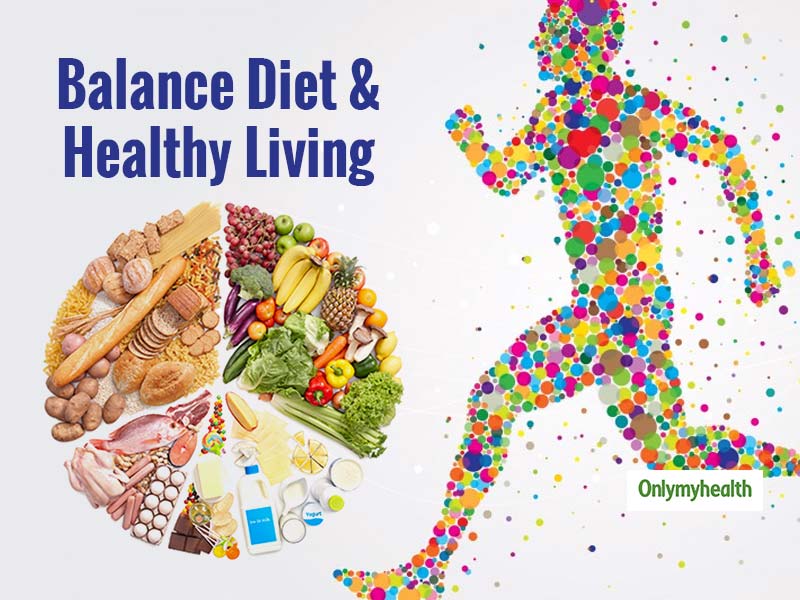
A diet is said to be balanced when your body gets the nutrients it needs to function correctly. Usually, people consume fresh fruits, vegetables, whole grains, nuts, lean proteins in their diet. A well-balanced diet provides vitamins, minerals, and nutrients to keep the body and mind healthy. There are a total of 7 essential factors for a balanced diet such as carbs, protein, fat, fibre, vitamins, minerals and water. Eating a wide range of foods will give the body the nutrients and micronutrients that it needs. The organs and tissue in your body play a significant role in keeping you healthy and fit. If you don’t get enough nutrition, your body will be more prone to disease, infection, fatigue, and less immunity. Not getting enough nutrition and overeating junk can cause even obesity and diabetes.
Table of Content:-

Health benefits of a balanced diet
Weight loss
Losing weight can reduce the risk of chronic conditions. A person with obese has a higher risk of developing several conditions, such as heart diseases, poor bone density, etc. Consuming whole vegetables and fruits won’t increase the calories much and get the desired nutrition. Maintaining a healthy diet can help a person stay fit and keep a count on the calories. Fibre is one element that is important for managing weight. Plant-based vegetables or foods contain plenty of dietary fibre which helps in regulating hunger.
Also Read: Protein Day 2020: Starting With Breakfast, Know How And Why Protein Should Be Included In Your Diet

Reduces cancer risk
Having an unhealthy diet can lead to obesity, which increases a person’s risk of developing cancer. In a 2014 study by the American Society of Clinical Oncology, It has been found out that a diet rich in fruits means a lesser risk of cancers of the upper gastrointestinal tract. Also, a diet rich in vegetables, fruits and fibres lowered the risk of colorectal cancer and liver cancer.
Management of diabetes
Maintaining a healthy diet can help a person to manages blood glucose levels, keep the blood pressure and cholesterol stable, prevent chances of complications. Also, people with diabetes need to limit their intake of foods with added sugar and salt. If you have diabetes, here's how to use an insulin pen for correct measurement of blood sugar levels:
Heart health and stroke prevention
According to a statistic published in 2017, almost 92.1 million people living in the US have at least one type of cardiovascular diseases. These conditions usually involve the heart or blood vessels. According to a study by the Heart and Stroke Foundation of Canada, almost 80 per cent of cases of heart problems entirely by changing the lifestyle like the increasing level of physical activity and eating healthy. Intake of vitamin E may prevent blood clots that lead to a heart attack. Some vitamin E-enriched food options are listed below:
- Almonds
- Peanuts
- Hazelnuts
- Sunflower seeds
- Green vegetables
Eliminating trans fat from the diet will reduce the levels of low-density lipoprotein cholesterol as there is a link between trans fats and heart-related illnesses such as coronary heart disease. Lowering blood pressure is essential for a healthy heart, and limiting the salt intake of 1,500 milligrams a day can help in reducing the chances of heart attacks and strokes.

Also Read: Difference Between Good And Bad Cholesterol And Ways To Control It
Improved memory
A healthy diet prevents dementia and cognitive decline. Some of the foods that protect against these adverse effects are:
- Vitamin D, C and E
- Fish
- Omega-3 fatty acids
Read more articles on Healthy Diet
Read Next
Protein Day 2020: Starting With Breakfast, Know How And Why Protein Should Be Included In Your Diet
How we keep this article up to date:
We work with experts and keep a close eye on the latest in health and wellness. Whenever there is a new research or helpful information, we update our articles with accurate and useful advice.
Current Version
